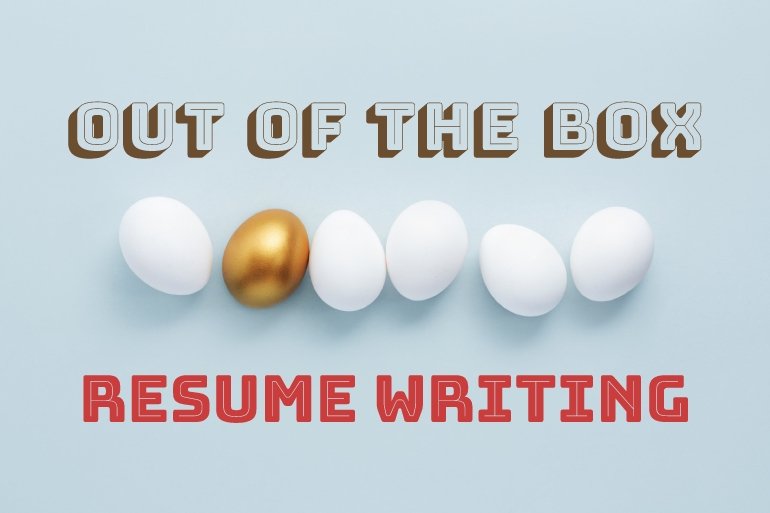“How can they judge me by a piece of paper? I have so much more to offer!”
You must have heard this multiple times when just after presenting a resume, people do not get shortlisted for an interview that they really were hoping to get a chance to sit for. As tough as it might be to digest, a piece of paper can actually be more than enough to gauge your personality and skills.
A resume has only two pages to show off your skills and earn the interview. It is how you express yourself in the hiring process and win the hearts of HR. As we progress towards the future, the importance of resumes is increasing. The most common reason for this being hike in competition and more people being aware of what skills will influence in keeping your resume unique amongst other competitors. A candidate needs to thrive on skills that include technical and interpersonal abilities. No matter how talented one is, the creativity to showcase things in the resume is much needed.
A resume is no different from a concrete fashion of storytelling. They want to know about you, your background, strengths and interests in a condensed manner.
Applicants who have both hard and soft skills are the ones who are being watched the most by employers. There are different ways you include these skills in your resume. Creating a skill section is a good start while there are other tricks that one needs to be aware of to excel in job interviews. This may look a bit tough at the start, but there’s no secret recipe to make your resume universally irresistible to employers. Before proceeding to what skills should you mention in your resume, one must know the top three steps to get started. Those are:
- Identify your key skills: seek into your inner self, and figure out what are the key skills that you have. And how these skills can show you different from the horde of applicants. One easy way to identify the same is SWOT (Strength, Weakness, Opportunity, and Threat) analysis.
- Research common skills in your industry: Important for people who are seeking an industry change. Check out the in-demand skills and aim to acquire the skills that are most trending during the year.
- Answer the job description: This is more vital when you apply for some job. Understand the requirement of the organisation you applied for and frame out the skills that you have and are more relevant to the organisation’s need. Remember to use a combination of soft and hard skills in your resume.
Resume writing can be tricky when it comes to choosing what to put and what to skip. What you might believe is the highlight of your profile might not actually be something that the firm you are applying to is looking for. Or, what you might believe is your least important skill, or professional or interpersonal strength might actually be the one that will land you your dream job. So, how to pick what to keep and what to remove? Moreover, after deciding what to put in there and what to omit, how can you fit it into two pages? What happens if you choose a non-conventional format? Or if it goes up to four pages?
Worry not; we will answer all your queries one by one.
There are a lot of skills one can include in his/her resume, but we have compiled the top 10 out-of-the-box things. All the factors play an equally important role as these are designed keeping in mind that the organisation’s use the Applicant Tracking System (ATS) to choose the best resume that matches the job description. The list goes as below:
- A strong headline: Millennials might be telling you that it is redundant. But mind you, whether it is a bot that is skimming through your document looking for keywords that make you a perfect match or an HR executive who wants to evaluate the amount of thought you put into presenting yourself eloquently on paper, a strong, crisp and influential headline is a must!
- Knowledge of specific computer applications: This is a part of the hard skills. One may include his excellence in computer software and overall digital literacy according to the need of the organisation. Exposure to virtual tools like Slack, ClickUp, etc. shows that you are tech-savvy.
- Applicable certificate or degree: Even if you have a degree in a different domain than the one company is looking for, this shows that you are hard-working and committed. If you lack the training or experience the employer wants, you can still improve on those shortly. Unlike soft skills, hard skills can be developed anytime in your life.
- Graphic design skills: One can always show graphic design skills if he/she has some because these influence the employer to understand your creativity skills. This doesn’t mean one should make a fancy resume, a simple but attractive resume would be considered creative as well.
- Computer programming, web/software development: While there might be an overlap between the computer applications and this skill, but these are meant for the employer to understand that the candidate has good critical thinking skills and he/she would have the upper hand in the hiring process.
- Foreign language proficiency: This skill is universal and showcases how well you can communicate with others especially in the case of business relations. This also indicates that you have eager to learn new things, and this would be beneficial from the companies point of view.
- Problem-solving/creativity: This is a soft skill one must add to his/her resume, but more people directly write the skill name, rather than writing how one has implemented the skills. This helps the employer understand the level of skill that you have.
- Communication: Almost every employer wants to hire people with good communication skills, stage daring can be considered as well. So one can elaborate that he/she has worked in a particular firm and worked as a project head while the work was to communicate with subordinates and ensure that the workflow is maintained.
- Time management: Time management and stress management are equally important and each of them complements one another. So the perfect way to express this would be elaborating on any project that had tight deadlines, and you completed the same despite the issues and challenges that arose during the same.
- Teamwork: This skill plays an important role when an individual works in a team. Ensuring that you accomplish the target and ensuring that the team accomplishes its target are two different things. So you can elaborate projects handled during your academics where you worked in a team of 4-5 members.
- Leadership skills: No matter how effectively you and your subordinates work, ensuring that there are no conflicts within the organization is an important factor. One must motivate his/her subordinates and treat them equally in all scenarios. One can elaborate about the work handled during internships or any other firm to showcase good leadership skills.
Not only adding these out of the box way of adding skills will work, but one has to ensure that skills are mentioned as keywords in the resume. Once you identify which skill must feature in your skill section, you can then hone on how to organise the content. Try not just to show that you have a particular skill rather elaborating where and how you implemented that particular skill would add up a lot more value to your resume. Also, add keywords used in the job description as it is in your resume (this helps you pass the ATS scan). Last but not least be specific and be honest.



